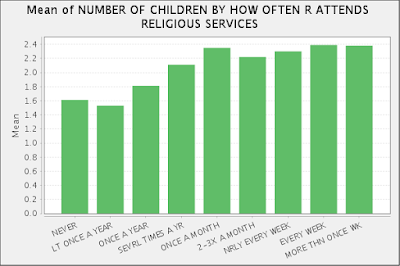Why have almost all of the greatest movie directors been men? Don't women like movies just as much as men?
Feminists, of course, would blame the patriarchy: Men have mysteriously gotten control of the world and will not let the helpless women do fun things like make movies.
But if discrimination has been so pervasive in the film industry, why in the world have we seen so many top homosexual directors? I'm not convinced that men before the 1970s were that dead set against women occupying important positions. Just the other night, I watched an old film titled, "Kansas City Confidential" (1952), and the lead female was studying to take the bar, and none of the male characters cared in the least.
Now, imagine the same story, but the romantic interest is a gay man preparing for the bar. Do we see movies like that for most of the 20th century? Hell no. Off the top of my head, I know that Clark Gable did not want George Cukor--known to be a homosexual--to direct "Gone With the Wind" and was influential in having him replaced by Victor Fleming. While there were plenty of homosexuals in Hollywood, people loathed it. No matter--gay men thrived in Hollywood and Europe as well. Perhaps you doubt this.
I went to the website
"They Shoot Movies, Don't They? and looked at their list of the top 250 directors of all time. The ranking is based on such factors as voting by directors and critics. I categorized a director as gay or bisexual if Wikipedia indicated they were. I put together the following list:
Gay Directors (from top 250)
Pedro Almodóvar
Lindsay Anderson
Kenneth Anger
Marcel Carné
Jean Cocteau
George Cukor
Terence Davies
Jacques Demy
Rainer Werner Fassbinder (bisexual)
Robert Hamer
Todd Haynes
Vincente Minnelli (bisexual)
F. W. Murnau
Pier Paolo Pasolini
John Schlesinger
Gus Van Sant
Luchino Visconti
Lana Wachowski (male-to-female transgender)
Lilly Wachowski (male-to-female transgender)
James Whale
I included the transgender Wachowski brothers since transgenders should face discrimination, if it is indeed such a profound problem.
That's 20 gay, bisexual, or transgender directors or 8% of the total. Keep in mind that sexual minorities are less than 8% of men, so they are
over-represented among the greatest directors.
How about women?
Female Directors (from top 250)
Kathryn Bigelow
Jane Campion
Claire Denis
Danièle Huillet (co-director with her husband Jean-Marie Straub)
Leni Riefenstahl
Agnes Varda
That's 6 or 2.4% of the total, and let's not forget that if women we're punching at their weight, they would be half of the best directors. Their numbers are abysmal.
You might counter that discrimination was intense through 1970, but things have changed and that is why we see that all top women are from the past few decades. Again, I would argue that if bias was intense prior to 1970 for women, it should be even more so for gay men--a hated minority if I've ever seen one--yet easily half of them worked prior to 1970.
The facts suggest that men are simply better at making movies. If a studio exec wanted to make the best "Little Women" possible in 1933, he needed to hire George Cukor and not give a damn about his "quirks." If a woman would have done it better, I submit that the studio execs would have swallowed hard and given her the job, even in 1933. A lot of money was on the line.
What qualities do men possess that give them such an advantage? Well, I'm no expert on directing, but I know that these are incredibly talented people at the highest percentiles of all relevant traits. These would include: intelligence, leadership, charisma, confidence, decisiveness, technical mastery, visual skills, writing skills (plot, character, dialogue, mood, humor), effective criticism, and ability to deal calmly through all the drama that comes with managing creative types. There is evidence that at the highest levels, men surpass women on these traits. And, by the way, the traits are all rooted in biology.









